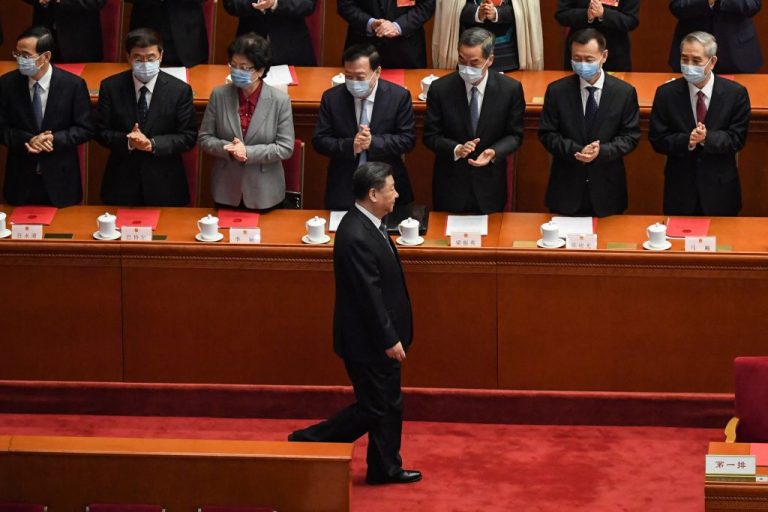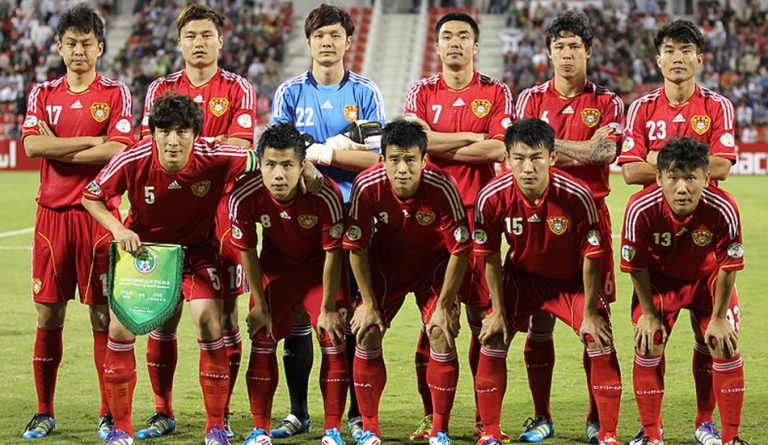The 20th National Congress of the Chinese Communist Party (CCP) opened on Sunday, Oct. 16 in Beijing, with thousands of delegates in attendance for the event where leader Xi Jinping is slated to assume a third term in office and further solidify his political control.
Xi delivered a two-hour summary of the 20th Party Congress work report, which extolled China’s development as a “modern socialist country” and credited himself with advancing the interests of the Party and the nation.
Chinese Premier Li Keqiang chaired the opening session, where he announced the 2,296 delegates and 83 specially-invited delegates.
By current norms, the CCP holds a National Congress every five years. Important personnel shifts are decided at the congresses and a new Central Committee, composed of several hundred top regime officials, is elected. The currently serving 19th Central Committee held its seventh and final plenary session from Oct. 8 to Oct. 12.
Xi provided some acknowledgement of the long-standing and severe crises facing his country and leadership, mentioning the word “security” 93 times.
READ MORE
Success
You are now signed up for our newsletter
Success
Check your email to complete sign up
According to Xi’s speech, the CCP central authorities made “major strategic deployments” and “dealt effectively” with the “severe and complex international situation and the enormous risks and challenges that followed,” and overcame many “problems that remained unresolved for a long time.”
Since 2020, the Chinese regime has pursued ruinous “zero-COVID” lockdowns that have destroyed livelihoods, shuttered businesses, and in many cases led to tragic deaths by starvation, suicide, medical emergencies, and many instances of official abuse.
For many Chinese and Western observers, the Congress holds particular significance as Xi is widely regarded as being the most powerful CCP leader since Mao Zedong, the founder of the regime.
Moreover, Xi’s move to take a third term goes against an informal two-term limit set in the 1980s — something many gained a reminder of when a lone protester, Peng Lifa, on Oct. 13 mounted a prominent demonstration on the Sitong Overpass in Beijing demanding Xi’s removal and calling for the next leader of the Communist Party to be selected by popular vote.
Coming to power in 2012 at the 18th Party Congress, Xi made some indications that he would attempt to deepen economic and civil reforms in his first term, but following a bitter ideological struggle with his factional opponents in the regime, opted to shore up his authority by adhering to Party orthodoxy.
Along with a sweeping anti-corruption campaign targeting his rivals, Xi’s leadership saw increasing emphasis on the CCP’s dictatorial position in society, leading to large-scale crackdowns on ethnic minorities in Xinjiang and the destruction of Hong Kong’s Western-style civic freedoms.
At the Congress, Xi mentioned the need to effect the “reunification” of self-governed Taiwan (officially the Republic of China) with the communist mainland, by force if necessary.
While there were a total of 2,379 official delegates at the Congress, only 2,340 were in attendance.
Several retired Party leaders and senior former officials were absent from the Congress, notably 96-year-old former CCP general secretary Jiang Zemin and his supporters Luo Gan and Wu Bangguo. The Jiang faction is regarded as retaining influence in the Party elite despite Xi’s 10 years of consolidating power.
According to political risk consultancy SinoInsider, the absences of various retired leaders and cadres is likely due to their age and other arrangements rather than political jockeying, given that many of the Jiang faction officials were included on the formal list of delegates.
Zeng Qinghong, regarded as the right-hand man of the Jiang faction, showed up, while Wang Qishan, a key ally of Xi, was missing from the Congress. According to an Oct. 20 SinoInsider analysis, Wang may have been held up by COVID quarantine protocols as he recently returned to China from a trip to Kazakhstan.
Following the Congress, Xi will likely enjoy greater authority over the regime, and could take steps to de-emphasize ideological orthodoxy in favor of rebranding Communist China’s image, according to the SinoInsider analysts.
Noting that Xi continued to stress “reform” in his work report, the analysts believe that Xi could also take practical steps to confront looming crises facing the country, such as by loosening “zero-COVID” restrictions.
At the same time, Xi will have to contend with built-in deficiencies of the Party’s authoritarian system and an increasingly united “anti-Xi, [but] not anti-CCP” sentiment among both his discontents at home and Western elites who see him as a reckless strongman leader.













